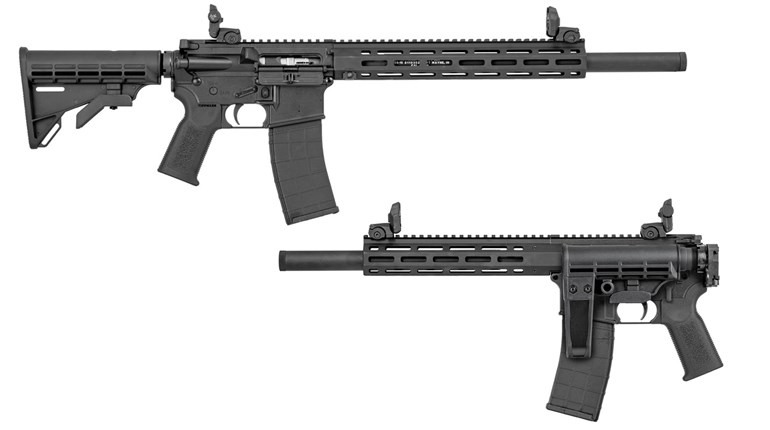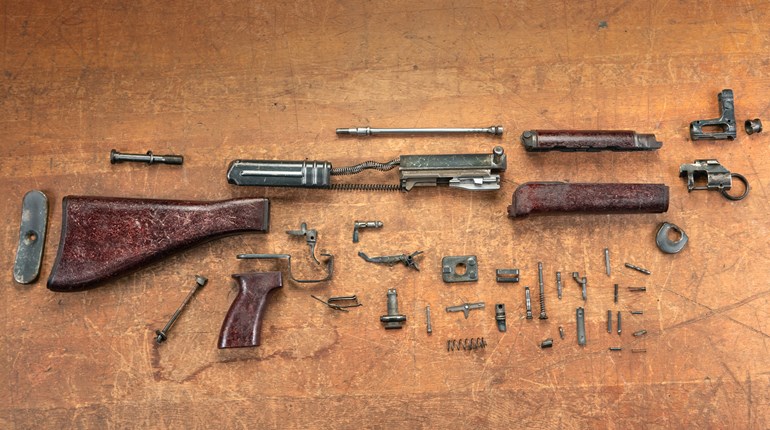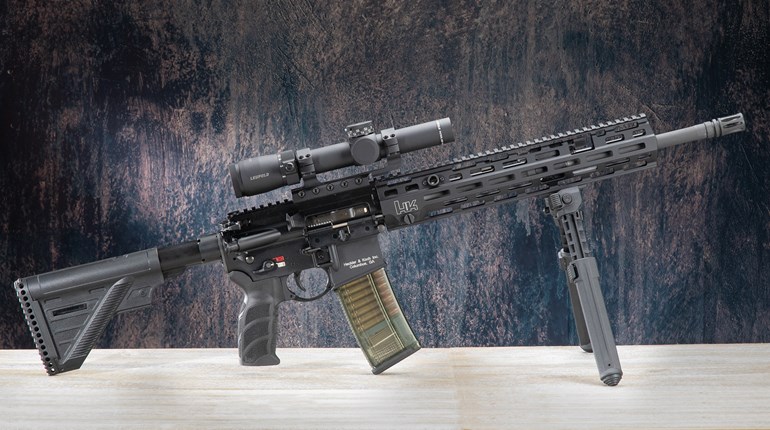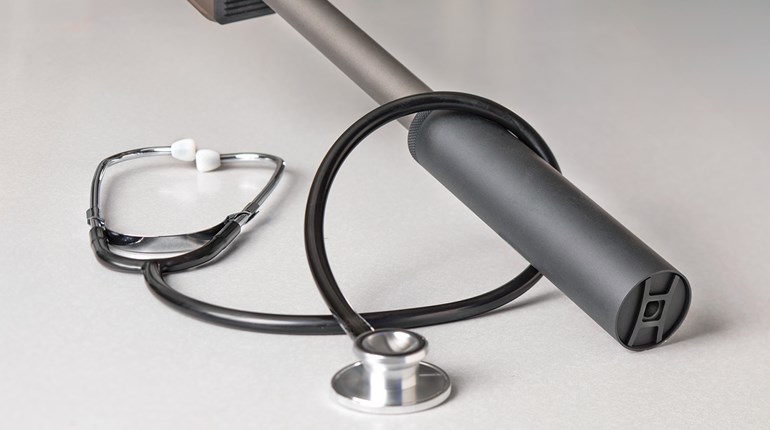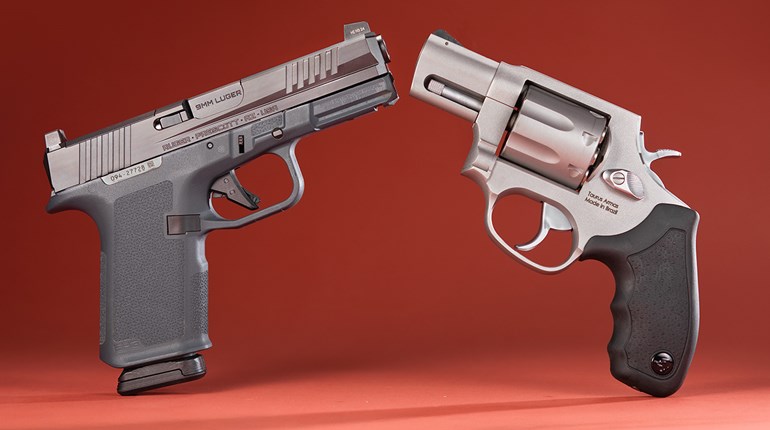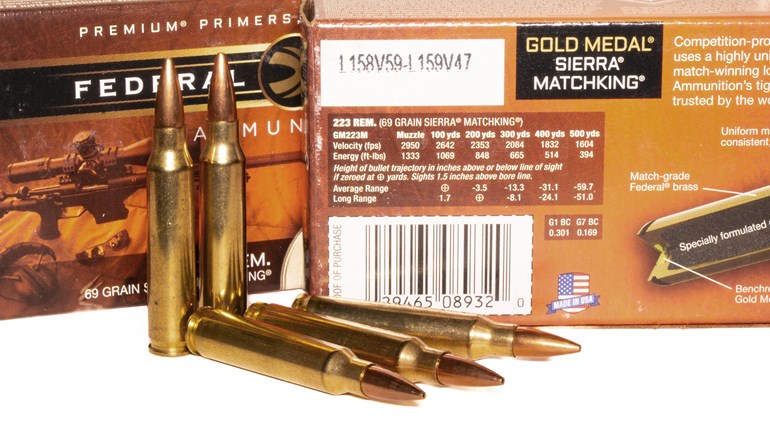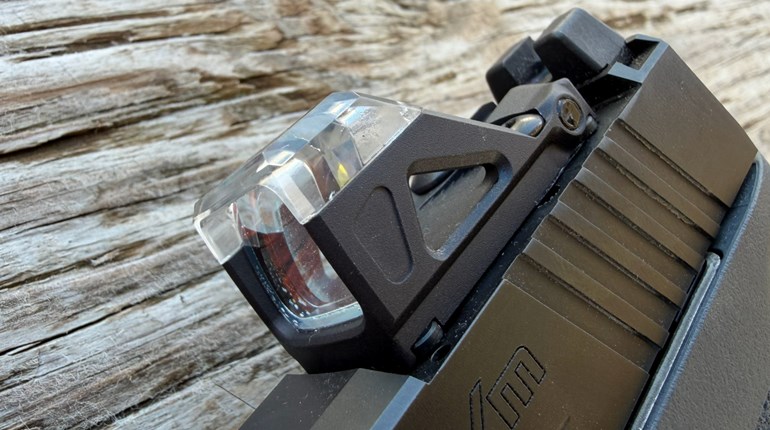
AR gas systems are increasingly included on the list o’ things to change in the aftermarket. It just so happens that gas systems—and port sizes in particular—are where a lot of our semi-auto functional problems originate. This is especially true when sound suppressors are added into the mix. User-adjustable gas blocks provide a quick and partially customizable solution to these problems. I’m a big fan of adjustable gas blocks for both direct-gas-impingement and piston operating systems, so I try to get my hands on the more innovative ones that hit the market. The Patriot Ordnance Factory Dictator is the newest addition to this category, and does indeed provide some flexibility with multiple ammunition types in both suppressed and unsuppressed modes.
Ideally we want our gas guns to function with the minimum amount of pressure needed to keep them reliable. Less gas in the operating system tends to dampen felt recoil and keep everything from the gas port rearward much cleaner and cooler. Adding a suppressor tends to increase the back-pressure in the operating system, speeding up a bolt group’s cyclic rate and sometimes throwing timing off to the point of inducing malfunctions. This increase in system pressure also leads to faster heating of internal gun parts and heavier fouling. The Dictator is designed to allow you to adjust your system up or down as needed. While it does not quite fit into the tool-less category, this regulator is easy to adjust with numerous items—a flat tipped driver, a cartridge case rim, a 3/32 hex key or the included “Dictation” wrench. The adjusting knob is up front, so as long as you have access from the front you can select any of the nine pre-sized ports. At the time of this writing, only mid- and carbine-length systems are available, one each for 5.56 NATO and .308 Win. ARs. All models are sized specifically for .750-inch gas block seats and are secured with a pair of set screws at the 6 o’clock position.
All Dictators come with straight-line gas tubes already attached. This setup makes for a tall gas block that eats up real estate under handguards. The overall height of the mid length 5.56 NATO Dictator I tested was 1.570 inches and the distance from center bore to the top was approximately .986-inch. I had trouble with the top edge impinging on several handguards so I opted instead for a 9-inch fore-end that terminated prior to the gas block.

Over the past few years I have recorded the gas port sizes of somewhere around 500 barrels I have worked on. I have also recorded the internal port sizes for the many different gas block designs I use, including customizable blocks. In many cases I size the ports in barrel and gas port combos to best function with a wide variety of ammo in different conditions. So I feel like I have a pretty good idea of which port sizes work in different calibers and AR gas system lengths in both suppressed and unsuppressed modes. I had hoped to better predict which barrels and calibers my test unit would work with. If I had owned the test gas block I would have pulled it apart to measure but since this one was going back to POF I elected to leave it alone and just continue in the blind.
The instructions accompanying my test unit stated that it was specifically for 5.56 guns, so naturally I first installed it on a 7.62x39 mm AR to see if it could be adjusted open to the point of cycling milder pressure ammo. As it turns out, there is a reason they say to use it on a 5.56 gun. I could not get my rifle to function on any setting, suppressed or unsuppressed, regardless of ammunition used. So I went back to the shop and followed instructions the second time around, installing the Dictator on a 14.5-inch-barreled, mid-length, 5.56 NATO SBR upper. I grabbed a Thunderbeast Arms 223 CB suppressor and some Black Hills Ammunition 55-grain FMJ and 77-grain match loads before heading back to the range for another test run.
I had hoped that I could find functional regulator positions for both loads in unsuppressed mode midway through the nine adjustment positions. Instead I had to open the gas block to the ninth and last position, or fully open, to get either load to work. Function was flawless once there but that position left nowhere to go if more pressure was needed. Under normal conditions, this is likely sufficient but in cases of extreme cold, heavy fouling or light loads more gas comes in handy. After attaching the suppressor I simply adjusted the Dictator by turning the knob clockwise one click at a time until I found the lowest position that would reliably function. That turned out to be four clicks in from fully open with 77-grain and three clicks in from fully open with 55-grain ammo. You’ll know you need more gas if your bolt carrier group A) does not cycle, B) ejects but doesn’t pick up the next round or C) functions but fails to lock back after the last round. In each case the likely culprit is low gas and so one or more counterclockwise clicks will get you back to working mode. While I did not have any over-gassed malfunctions during testing, typical signs include failures to fully eject and the subsequent failures to feed as well as a bolt that moves faster than a magazine can feed new rounds. Closing the Dictator’s ports down with clockwise movement of the knob is called for in these cases.
I used the small wrench that POF includes with the Dictator for most adjustments because it was fast and simple. A flat blade worked fine but required me to come completely off the gun and move to one side in order to find the slot. I was able to adjust it with a case rim but that casing quickly became unsuitable for reloading after the Dictator’s knob chewed up the rim. Overall I found this gas block easy to adjust and suitable for both range and field use.
While I did not get to do as much testing with the Dictator as I had hoped for, I was able to verify that it works to fine tune specific gas systems and chamberings in the AR platform. MSRP is $179.99.












